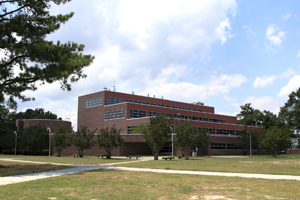U.S. Department of Education awards nearly $2.9 million to strengthen minority college participation in STEMs

Bonnie Wintson
October 10, 2011
Elizabeth City State University is among 12 colleges and universities selected to receive more than $2.8 million in federal grants to strengthen education programs in science, technology, engineering, and mathematics (STEM) fields.
ECSU will receive $282,957 under the Minority Science and Engineering Improvement Program (MSEIP) grants. Other institutions are in California, the District of Columbia, Florida, Georgia, Texas and Puerto Rico.
The grants were announced recently by U.S. Secretary of Education Arne Duncan and are aimed at increasing the number of ethnic minorities studying in STEM fields.
"These grants will help prepare more minority students for STEM-related careers, which are in high demand and critical to building a competitive workforce that will grow our economy," Duncan said.
Dr. Ali Khan, ECSU’s provost and vice chancellor for academic affairs, said the university will use the money during the next three years to fund workshops for faculty in a partnership with 12 other institutions of higher learning.
"Up to 50 faculty will learn techniques that improve their critical-thinking skills," Khan said. "We will help the participants design classrooms where professors take a multimedia approach to instruction."
He said the training the professors receive ultimately will impact more than 2,000 students.
ECSU Chancellor Willie J. Gilchrist called the U.S. Department of Education grant a great investment in students who pursue degrees in STEM fields.
"We are fortunate to have faculty here at ECSU who are well prepared to provide this service to the guest faculty who will attend the upcoming workshops," Gilchrist said. "We look forward to working with our new partners to prepare the students who select these challenging fields of study."
MSEIP supports the Obama Administration’s overall goal of improving STEM education to increase America’s technological and scientific competitiveness. The administration also is working to improve the quality of math and science teaching in U.S. schools so that students can master challenging content, think critically in STEM-related subjects, and are no longer outperformed by students in other nations.
The grants were awarded to institutions that serve large minority populations.

